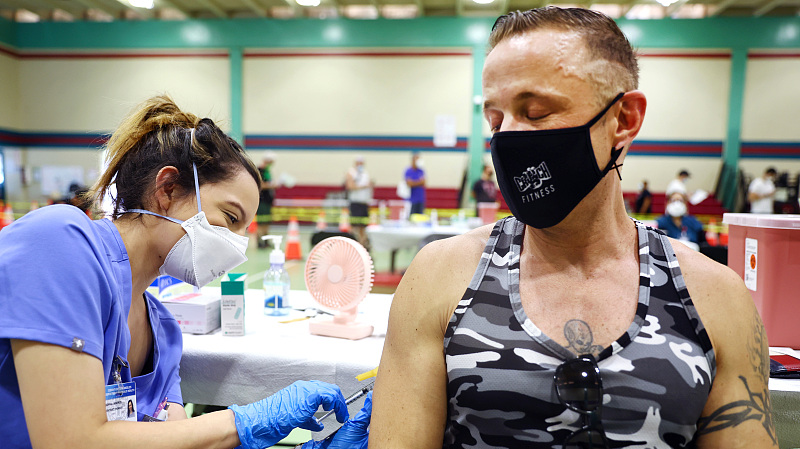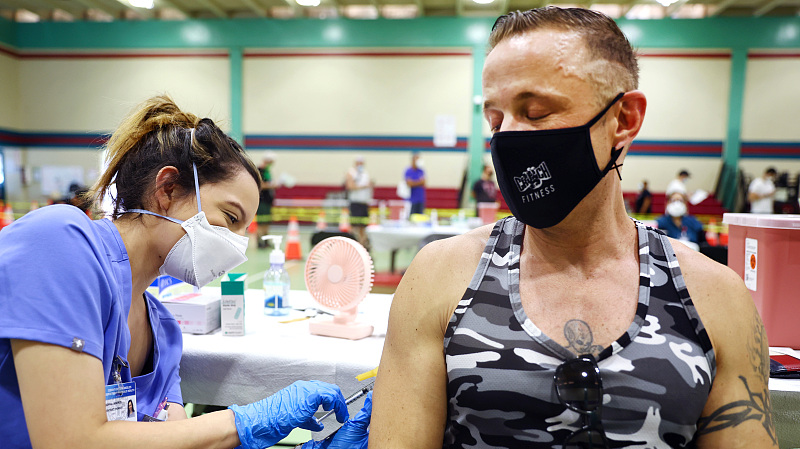
A man receives a dose of the Jynneos monkeypox vaccine at a vaccination site in Los Angeles, California, U.S., August 10, 2022. /CFP
Despite a growing supply of the monkeypox vaccine in the United States, there is still no evidence that protection is reaching those most at risk, CNN reported earlier this week.
About three months into the ongoing monkeypox outbreak in the country, there were 14,115 confirmed cases as of August 18, according to the U.S. Centers for Disease Control and Prevention (CDC).
"But despite a growing supply of the Jynneos vaccine – and a new strategy that could stretch the current supply five times further – there is still no evidence that protection is reaching those most at risk," said the report. In early August, the government authorized a new infection method to stretch the nation's limited supply of monkeypox by splitting doses to cover five times as many people.
A detailed analysis of monkeypox case records published by the U.S. CDC this month offered new insight into which populations are disproportionately affected in the outbreak, including Black and Hispanic people, according to the report.
But there is still no nationwide look at who has received the vaccine, and the limited state-level data that has been made available is not promising, said the report.
"We need the states, the local public health directors to feed us data so we know. Not only so we have a sense of how – what kind of volume, but to know how to concentrate the help that we can provide," said Xavier Becerra, secretary of U.S. Department of Health and Human Services.
"We need to have more cooperation from the locals to get the information we need."






